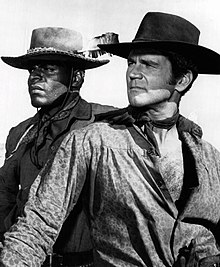
Harlan Jay Ellison was an American writer, known for his prolific and influential work in New Wave speculative fiction and for his outspoken, combative personality. His published works include more than 1,700 short stories, novellas, screenplays, comic book scripts, teleplays, essays, and a wide range of criticism covering literature, film, television, and print media. Some of his best-known works include the 1967 Star Trek episode "The City on the Edge of Forever", considered by some to be the greatest episode of Star Trek ever, his A Boy and His Dog cycle, and his short stories "I Have No Mouth, and I Must Scream" and "'Repent, Harlequin!' Said the Ticktockman". He was also editor and anthologist for Dangerous Visions (1967) and Again, Dangerous Visions (1972). Ellison won numerous awards, including multiple Hugos, Nebulas, and Edgars.
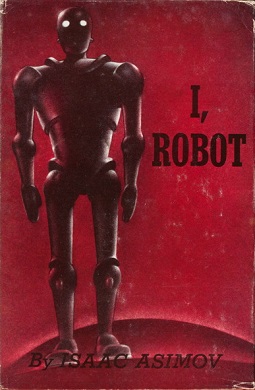
I, Robot is a fixup collection made up of science fiction short stories by American writer Isaac Asimov. The stories originally appeared in the American magazines Super Science Stories and Astounding Science Fiction between 1940 and 1950 and were then collected into a 1950 publication Gnome Press in 1950, in an initial edition of 5,000 copies.

The Starlost is a Canadian-produced science fiction television series created by writer Harlan Ellison and broadcast in 1973 on CTV in Canada and syndicated to local stations in the United States. The show's setting is a huge generational colony spacecraft called Earthship Ark, which following an unspecified accident has gone off course. Centuries after its original launch however, most of the descendants of the original crew and colonists are unaware that they are even aboard a spaceship. The series experienced a number of production difficulties, and Ellison broke with the project before the airing of its first episode.

A Boy and His Dog is a cycle of narratives by author Harlan Ellison. The cycle tells the story of an amoral boy (Vic) and his telepathic dog (Blood), who work together as a team to survive in the post-apocalyptic world after a nuclear war. The original 1969 novella was adapted into the 1975 film A Boy and His Dog directed by L.Q. Jones. Both the story and the film were well-received by critics and science fiction fans, but the film was not successful commercially. The original novella was followed by short stories and a graphic novel.
"The City on the Edge of Forever" is the twenty-eighth and penultimate episode of the first season of the American science fiction television series Star Trek. It was written by Harlan Ellison; contributors to and/or editors of the script included Steven W. Carabatsos, D. C. Fontana and Gene L. Coon. Gene Roddenberry made the final re-write. The episode was directed by Joseph Pevney and first aired on NBC on April 6, 1967, with a repeat broadcast on August 31, 1967.
"Shatterday" is the first segment of the premiere episode of the first season of the television series The Twilight Zone. The story follows a man who finds that a double of himself has moved into his apartment and is taking over his life. The segment is nearly a one-man show for featured actor Bruce Willis; all the other significant characters appear only offscreen.
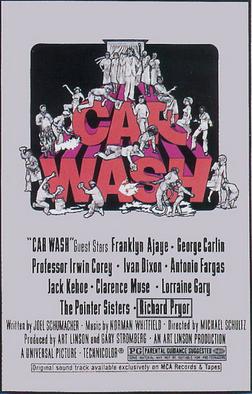
Car Wash is a 1976 American comedy film released by Universal Pictures. Directed by Michael Schultz from a screenplay by Joel Schumacher, the film stars Franklyn Ajaye, Bill Duke, George Carlin, Irwin Corey, Ivan Dixon, Antonio Fargas, Jack Kehoe, Clarence Muse, Lorraine Gary, The Pointer Sisters, Richard Pryor, and Garrett Morris. Originally conceived as a musical, Car Wash is an episodic comedy about a day in the lives of a close-knit group of employees at a Los Angeles, California car wash and their boss, Leon "Mr. B" Barrow.

Raw Deal is a 1948 American film noir crime film directed by Anthony Mann and starring Dennis O'Keefe, Claire Trevor and Marsha Hunt. It was shot by cinematographer John Alton with sets designed by the art director Edward L. Ilou. An independent production by Edward Small, it was distributed by Eagle-Lion Films.
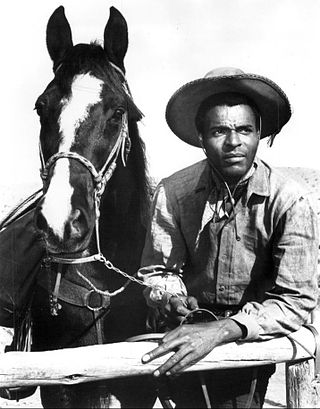
Otis E. Young was an actor and writer. He co-starred in a television Western, The Outcasts (1968–1969), with Don Murray. Young was the second African-American actor to co-star in a television Western, the first being Raymond St Jacques on the final season of Rawhide in 1965. Young played another memorable role as Jack Nicholson's shore patrol partner Richard "Mule" Mulhall in the 1973 comedy-drama film The Last Detail, and his later film credits included the low budget horror films The Capture of Bigfoot (1979) and Blood Beach (1981).
"Demon with a Glass Hand" is an episode of the American television series The Outer Limits, the second to be based on a script by Harlan Ellison, which Ellison wrote specifically with actor Robert Culp in mind for the lead role. It originally aired on October 17, 1964, and was the fifth episode of the second season. In 2009, TV Guide ranked "Demon with a Glass Hand" #73 on its list of the 100 Greatest Episodes.

Rogue was a Chicago-based, men's magazine published by William Hamling from 1956 until 1965. Founding editor Frank M. Robinson was followed by other editors, including Harlan Ellison and Bruce Elliott. The magazine was subtitled "Designed for Men."

"Paladin of the Lost Hour" is the second segment of the seventh episode of the first season of the first revival of the television series The Twilight Zone, adapted from a novelette by scriptwriter Harlan Ellison. The story follows the friendship between a Vietnam veteran and an old man entrusted with forestalling the end of the universe. The television episode starred Danny Kaye in one of his final screen appearances.

If Death Ever Slept is a Nero Wolfe detective novel by Rex Stout, published by the Viking Press in 1957 and collected in the omnibus volume Three Trumps.

The Outer Limits is an American television series that was broadcast on ABC from September 16, 1963, to January 16, 1965, at 7:30 PM Eastern Time on Mondays. It is often compared to The Twilight Zone, but with a greater emphasis on science fiction stories. It is an anthology of self-contained episodes, sometimes with plot twists at their ends.

"Bop Gun" is the second season premiere of the American police drama television series Homicide: Life on the Street, and the tenth overall episode of the series. It originally aired on NBC in the United States on January 6, 1994. In the episode, the Baltimore homicide unit investigates the shooting death of the wife of a tourist, played by guest star Robin Williams.
William Ellison Jr., born April Ellison, was an American cotton gin maker and blacksmith in South Carolina, and former African-American slave who achieved considerable success as a slaveowner before the American Civil War. He eventually became a major planter and one of the wealthiest property owners in the state. According to the 1860 census, he owned up to 68 black slaves, making him the largest of the 171 black slaveholders in South Carolina. He held 63 slaves at his death and more than 900 acres (360 ha) of land. From 1830 to 1865 he and his sons were the only free blacks in Sumter County, South Carolina to own slaves. The county was largely devoted to cotton plantations, and the majority population were slaves.
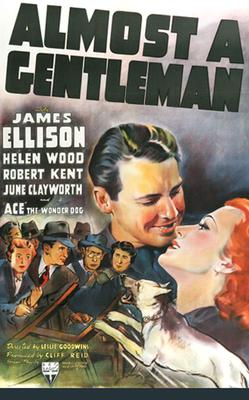
Almost a Gentleman is a 1939 American drama film directed by Leslie Goodwins from a screenplay by David Silverstein and Jo Pagano, based on the story by Harold Shumate. The film stars James Ellison, Helen Wood and Robert Kent. It was released by RKO Radio Pictures on March 31, 1939.
Corey Jones was shot to death by police officer Nouman K. Raja, while waiting for a tow truck by his disabled car, in Palm Beach Gardens, Florida.
This is a list of works by Harlan Ellison (1934–2018). It includes his literary output, screenplays and teleplays, voiceover work, and other fields of endeavor.
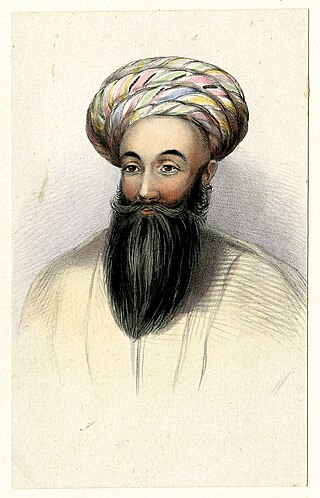
Shah Shuja Durrani was ruler of the Durrani Empire from 1803 to 1809. He then ruled from 1839 until his death in 1842. Son of Timur Shah Durrani, Shuja Shah was of the Sadduzai line of the Abdali group of ethnic Pashtuns. He became the fifth King of the Durrani Empire.
